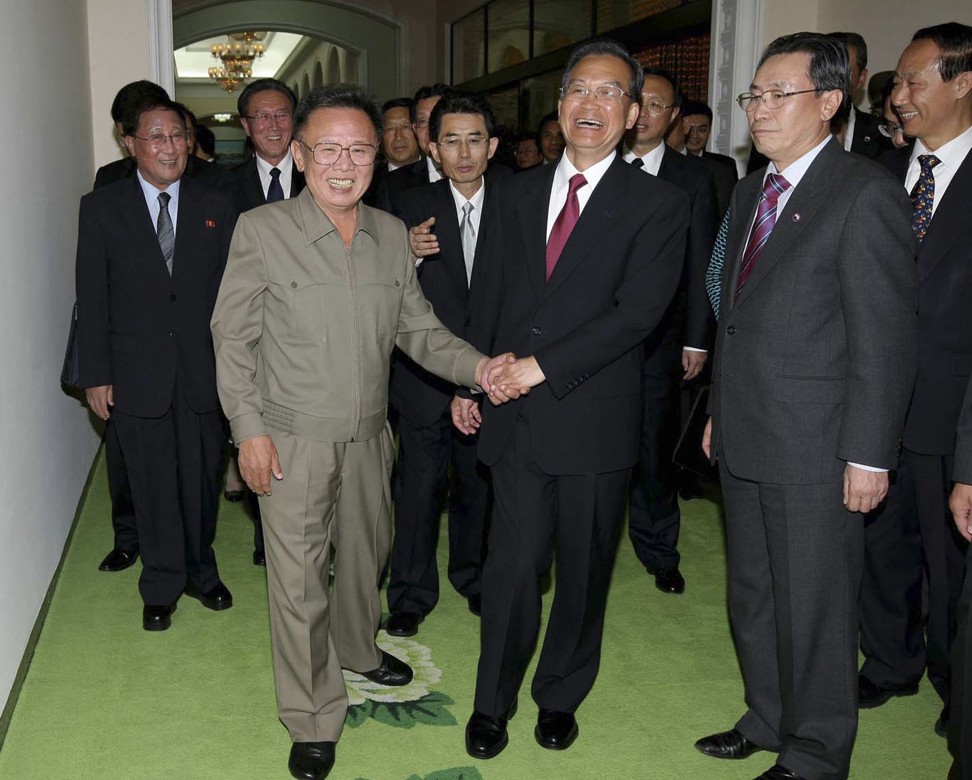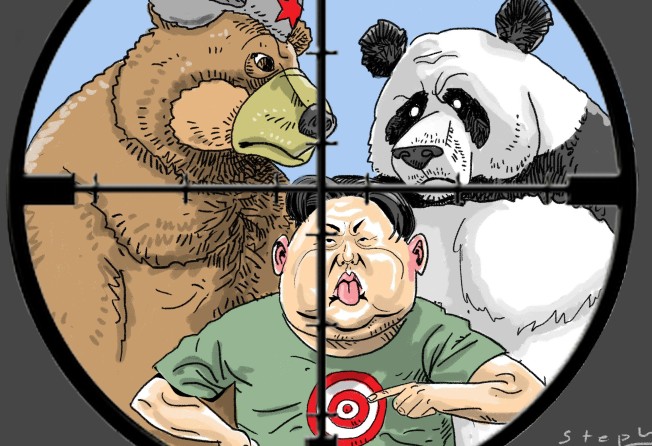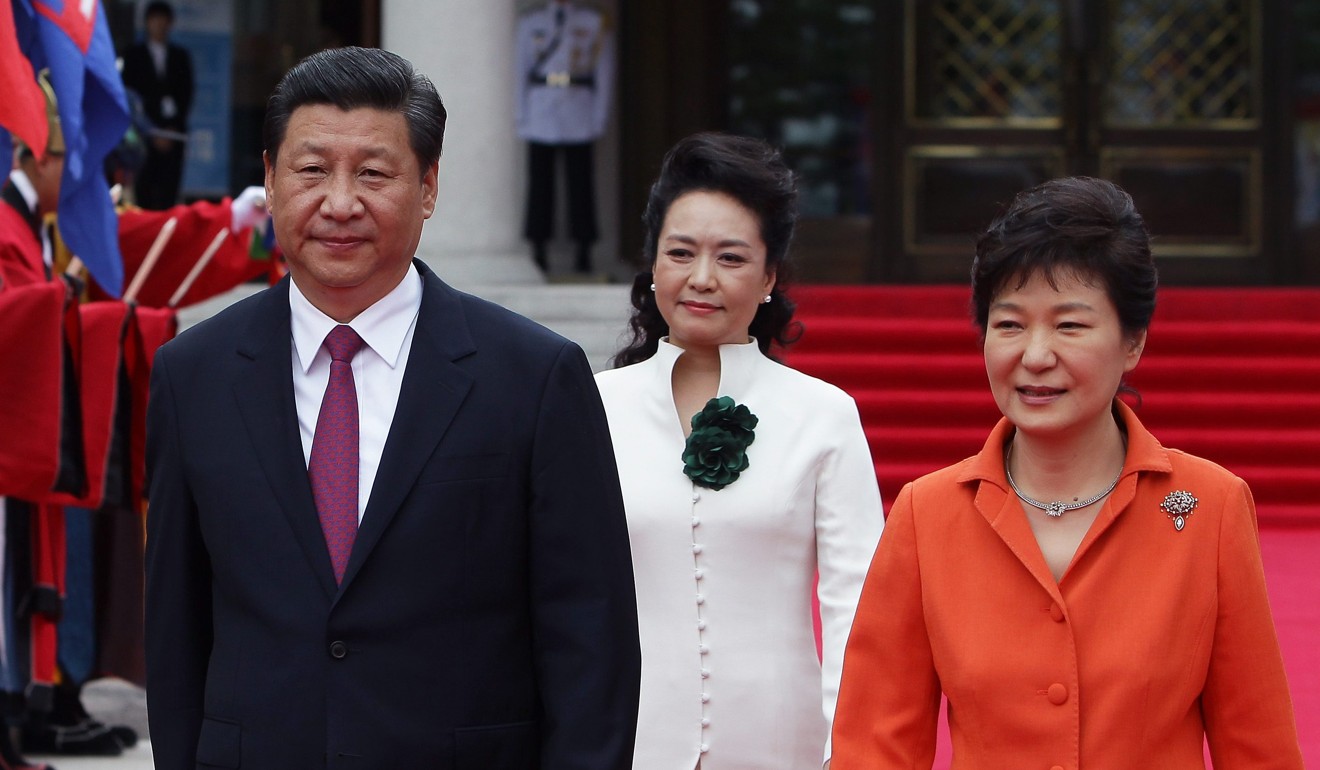
Why Kim Jong-un may be banking on a US military strike to ensure his survival
Bob Savic says with China enforcing UN sanctions and getting closer to South Korea, the North Korean leader may well force America’s hand to show Beijing and Moscow his indispensability as the leader of a buffer state

Even if there was some back room deal-making between the US and North Korea, perhaps through Russia’s promised mediation, it is unlikely to make any real difference in deterring Kim from his efforts to provoke an American military attack.
After the George W. Bush administration declared North Korea as one of the three countries on its “Axis of Evil”, and a month after the March 2003 US invasion of Iraq, North Korea announced that it possessed nuclear weapons. In 2006, it undertook the first of a series of nuclear and missile tests.
Following these, North Korea’s then leader Kim Jong-il refrained from further testing for three years, until 2009, when another round of nuclear and missile tests were carried out.
Similarly, after its first nuclear and missile tests under current leader Kim Jong-un, in 2013, North Korea refrained from further testing for a period: from 2013 to early 2016 with regard to nuclear tests, and from 2015 to mid-2017 for missile tests.
However, a major divergence in the pattern arose in the wake of the two leaders’ second rounds of testing. After 2009, Kim Jong-il halted further tests, whereas, following the resumption of testing in 2016-17, Kim Jong-un has not only intensified his missile launching activities, but has threatened to escalate nuclear testing as well.

It was not long after Kim Jong-un’s December 2011 ascension to power, after the death of his father Kim Jong-il, that Xi Jinping became China’s leader.
Xi became president in March 2013 – and the relationship between the two leaders was negative from the outset.
Only a few days before Xi formally assumed power, China voted to apply a new round of UN sanctions on North Korea, in response to the younger Kim’s first nuclear test.
For the first time, sanctions included economic components, including a ban on exports of luxury goods to North Korea.
Donald Trump threatens North Korea with ‘fire and fury’
In response to Pyongyang’s last three nuclear tests – in January and September last year, and the sixth and most powerful on September 3 – China agreed to UN sanctions that further extended the general economic impact on North Korea. These include a ban on textile imports from North Korea, and new restrictions on trade in crude oil.
Even so, during the lull in North Korea’s nuclear and missile testing, Pyongyang looked to strengthen its relations with Beijing. Notably, there was great anticipation in late-2015 that Kim would be invited to visit Xi in Beijing, following a visit that October by a senior official of China’s Politburo Standing Committee, Liu Yunshan. Liu was the highest-level Chinese politician to travel to North Korea since Xi took office. By the end of 2015, however, it was clear that no such invitation was forthcoming.
Shortly thereafter, on January 6, North Korea resumed its nuclear testing.
Xi’s first visit to the Korean peninsula was a trip to Seoul in July 2014, to meet then president Park Geun-hye. It was the first time any Chinese president had chosen to visit South Korea before the North. In fact, during the first three years of Park’s administration from 2013, relations between China and South Korea progressed positively, and were deemed to be at their best ever since bilateral ties were normalised in 1992.
To a large extent, China’s relations with South Korea have been pushed along by rapidly growing economic ties. In addition, Xi’s attempts to move China towards a more market-driven economy, involving the closure of many state industrial and mining companies, has further fuelled the growing divide between Xi’s vision of a modern Chinese economy and those of Kim’s adherence to a state-socialist economic model for North Korea.

Significantly, the more recent warming of relations between Beijing and Seoul – following the furore that arose over the THAAD controversy – came after the ouster last year of Park, whose administration had presided over the placement of the American anti-missile system in South Korea.
The election in May of Moon Jae-in, who has advocated for rapprochement with China, as South Korea’s president will have further contributed to thwarting Kim Jong-un’s ambitions for renewing a special relationship with Beijing.
China, Russia, US and South Korea engage in a show of military power
It may well be, therefore, that Kim has calculated two likely outcomes surrounding his fate: a long-term decline in the importance of Pyongyang to Beijing that sooner or later leads to his demise, or a high-risk venture provoking the US into military intervention against North Korea – compelling Chinese and Russian military interventions to fend off a large-scale US military presence on the Korean peninsula, and affirming Kim’s indispensable position as the leader of a vital buffer state.
The latter outcome may be getting closer by the day, as Chinese and Russian militaries continue to mobilise troops along the North Korean border, possibly preparing to avert what Russian President Vladimir Putin recently described as “a global, planetary catastrophe that could lead to a huge loss of life”.
Bob Savic is a senior research fellow at the Global Policy Institute in London, UK